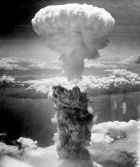Significance
Equipping students to make well-reasoned judgements about the historical significance of past events is one way of alerting them to the value and purpose of studying the past. But teaching about this disciplinary concept also involves developing young people’s understanding that historical significance is not an enduring or unchanging characteristic of any particular event. It is a contingent quality that depends on the perspective from which that event is subsequently viewed. While judgements of significance are likely to include consideration of the depth and extent of any immediate consequences arising from the event in question, they will also be based on the endurance of those consequences as well as on subsequent developments and on the concerns of those who are making the judgement. The resources in this section explore the range of criteria that students might be encouraged to use in ascribing significance to events and set out a variety of productive strategies that teachers have used to help students work with others’ criteria as well as formulating, justifying and deploying their own.
-

Shaping what matters: Year 9 decide why we should care about the Windrush scandal
ArticleClick to view -

Significance
ArticleClick to view -

Significance - Powerpoint Presentation - Changes in the KS3 Curriculum
ArticleClick to view -

Three strategies to support pupils’ study of historical significance
ArticleClick to view -

Triumphs Show 141: using family photos to bring the diversity of Jewish lives to life
ArticleClick to view -

Triumphs Show 144: Active learning to engage ‘challenging students'
ArticleClick to view -

Triumphs Show 150.2: Year 13 game for reaching substantiated judgements
ArticleClick to view -

Using 1980s popular music to explore historical significance
ArticleClick to view -

Using family history to provoke rigorous enquiry
ArticleClick to view -

What they think they know: the impact of pupils' preconceptions on their understanding of historical significance
ArticleClick to view -

What’s The Wisdom On... Historical significance
ArticleClick to view -

Where are we? The place of women in history curricula
ArticleClick to view -

Who inherits the house? Using heritage to shape pupils’ thinking about historical significance
ArticleClick to view

